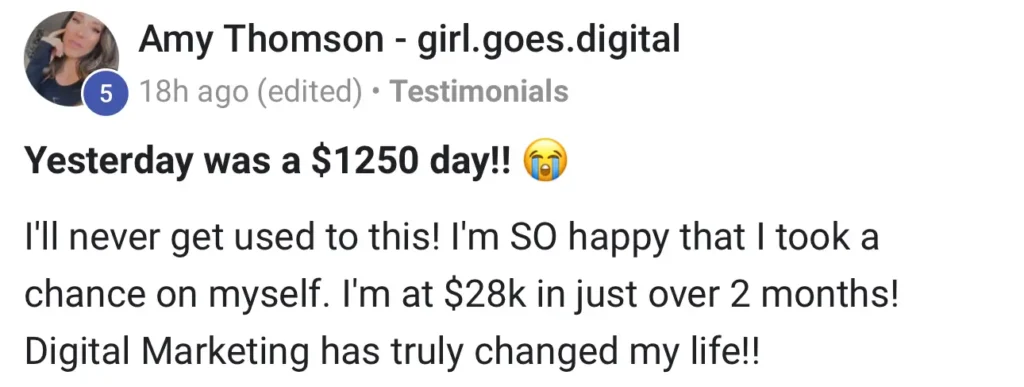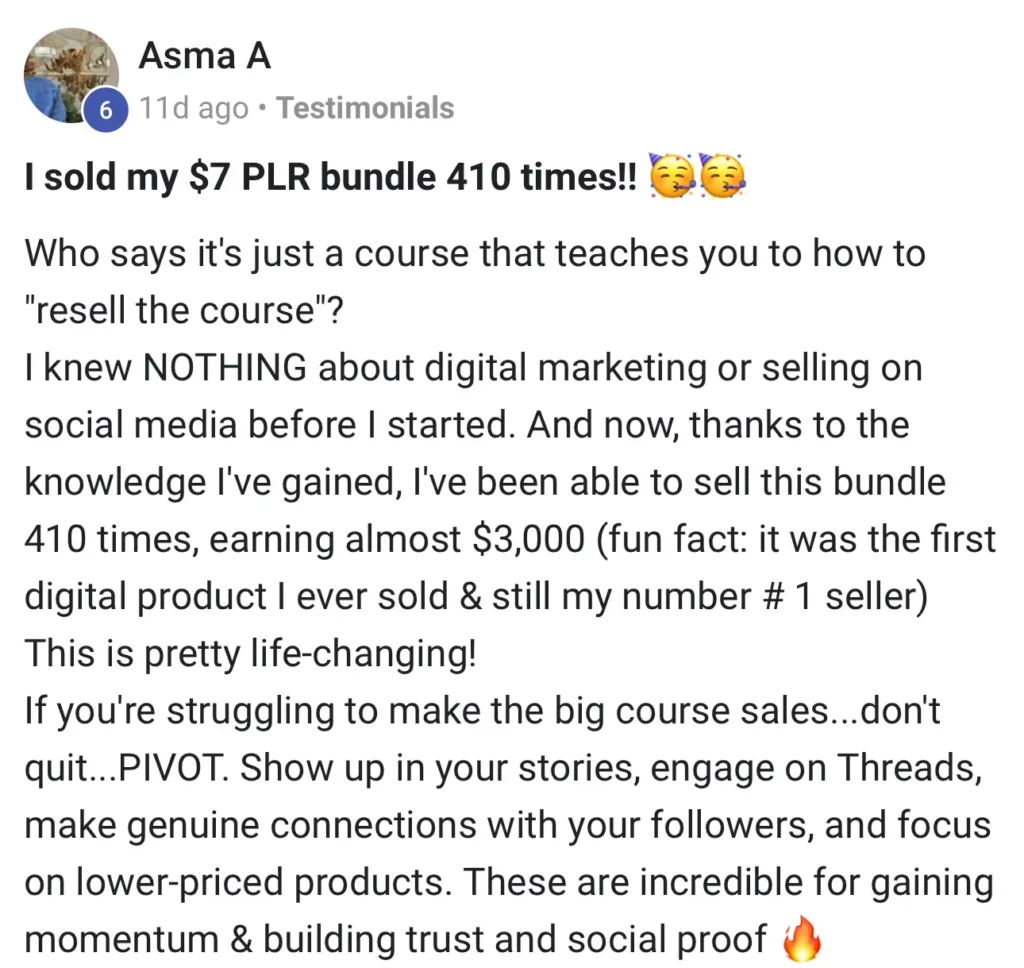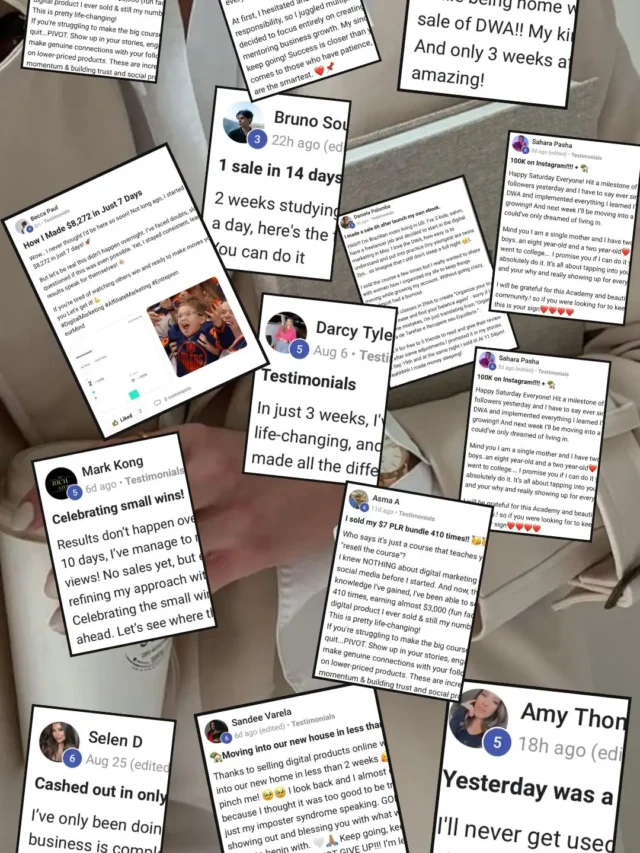What if everything you know about building wealth is wrong?
I’ve watched countless people chase fat paychecks and luxury cars, only to realize they’re stuck on a hamster wheel.
Here’s the kicker: getting money and keeping wealth require completely different playbooks.
Dr. Jim Dahle nailed it when he said
Building riches boils down to four steps: earn more, spend less, invest wisely, and protect your stash.
But here’s what nobody tells you, looking wealthy often means someone’s drowning in debt.
I’ve seen six figure earners panic when their Tesla needs new tires.
Let’s cut through the noise.
This isn’t about side hustles or crypto schemes.
We’re talking real strategies that helped me go from ramen nights to financial confidence.
You’ll learn why “rich” isn’t what you drive or wear, it’s what your bank account does while you sleep.
Building wealth isn’t about luck, it’s about learning the right strategies and applying them consistently.
After testing countless financial programs and online income methods over the years, one stands out for those serious about changing their lives: Digital Wealth Academy (DWA).
This program offers practical, beginner friendly training that helps you understand how to generate income, grow your digital assets, and create long term financial freedom.
It’s not just theory, it’s a step by step system used by real people, many of whom have seen results in a matter of weeks.
But here’s the truth: becoming rich takes effort.
Your results will depend on your commitment, consistency, and how well you apply what you learn.
If you’re ready to stop guessing and start growing, this is the expert backed path worth exploring.

a free beginner’s guide
DWA Sneak Peek
Learn the easiest and fastest way to start or exponentially grow your existing business.



Table of Contents
Key Takeaways
The gap between appearing wealthy and actually building wealth is wider than you think
Lifestyle inflation secretly destroys more fortunes than bad investments
True wealth comes from systems, not just salary numbers
Protecting your assets matters as much as growing them
Sustainable strategies beat get rich quick plans every time
Ready to crack the code?
Let’s rebuild your money mindset, one smart move at a time.
Understanding Wealth: Defining What It Means to Be Rich
Ever met someone driving a Porsche but secretly eating peanut butter sandwiches for dinner?
A friend once counseled a tech exec making $850K who swore he was “barely getting by”.
Meanwhile, my neighbor with a modest Honda Accord quietly retired at 52.
This disconnect between income and net worth blows more financial plans than stock market crashes.
It’s not about how much you earn, it’s about your net worth.
Examining Net Worth vs. Income
Dr. Dahle’s research shows even multimillionaires doubt their success.
One client had $5.2M in stocks and $2M in real estate, yet kept asking, “Am I wealthy enough?”
Here’s the truth: your bank statement matters more than your W2.
I’ve seen:
- Lawyers earning $1M a year with negative net worth
- Teachers retiring with $3M portfolios
- Entrepreneurs “looking rich” while scrambling for investor cash
Recognizing True Wealth Beyond Appearances
That Instagram influencer flaunting designer bags?
Probably leasing them.
Real wealth whispers.
It’s the barista who owns three rental properties, or the nurse maxing her 403(b).
Financial security isn’t about what you earn.
It’s what stays in your accounts after life happens.
Next time you see luxury cars, remember: 85% of BMW 7 Series are leased.
True millionaires?
They’re more likely driving that 2018 Camry in the grocery store parking lot.
Setting the Foundations for Financial Success
Your job title might be the biggest obstacle to your wealth.
Robert Kiyosaki’s Cash Flow Quadrant reveals why:
How you earn money matters more than how much you make.
I learned this the hard way when I realized my corporate paycheck kept me trapped in the “E” quadrant, trading hours for dollars.
The four income categories explain why some people build wealth effortlessly while others grind endlessly:
| Quadrant | Income Source | Wealth Potential |
|---|---|---|
| Employee | Salary | Limited |
| Self Employed | Direct Work | Moderate |
| Business Owner | Systems | High |
| Investor | Assets | Unlimited |
Establishing a Sound Financial Plan
Most people focus on moving left to right on this chart, from employee to self employed.
True wealth builders jump to the right side.
A known of mine transitioned from freelance designer (self employed) to running a digital agency (business owner) in 18 months.
Her secret?
Building systems that work while she sleeps.
Your financial plan needs two key goals: escape the time for money trap and create leverage.
Start by allocating 20% of your income to assets that generate passive cash flow.
Think rental properties, dividend stocks, or digital products.
Remember, wealth isn’t about working harder.
It’s about working smarter.
As Kiyosaki says:
“Poor people sell their time. Rich people buy other people’s time”.
Which quadrant will fund your retirement?
Practical Steps on How to Be Rich
Ever wonder why most millionaires don’t have fancy degrees?
I mentored a truck driver who built a $4M fortune brokering industrial equipment, knowledge he picked up from YouTube and trade forums.
Traditional schools teach compliance, not cash flow.
Let’s fix that.
Actionable Wealth Building Tips
The entrepreneur ladder isn’t optional, it’s mandatory.
First comes the Technician stage (you do everything).
Then the Manager (others help).
Finally, Entrepreneur (systems run without you).
Most get stuck at step one.
Here’s how to climb:
| Stage | Focus | Time Allocation |
|---|---|---|
| Technician | Skill mastery | 80% doing, 20% planning |
| Manager | Team building | 50% training, 50% systems |
| Entrepreneur | Asset growth | 90% strategy, 10% oversight |
From Earning to Investing: The Transition
Real wealth starts when your business funds your investments.
Take medical device sales, reps earning $300K a year, often funnel profits into rental properties.
I’ve seen similar success in niches like:
- Commercial kitchen grease recycling
- Cell tower lease arbitrage
- Vending machine route automation
These aren’t get rich quick schemes.
They’re proven models where work creates systems, then systems fund investing.
Start by allocating 20% of your time to learning non traditional skills.
Podcasts beat textbooks here, try “The Industrial Hustle” or “Odd Lots”.
“Wealthy people solve problems nobody else sees”.
Your move?
Identify one scalable opportunity this week.
Maybe it’s brokering truck parts or leasing billboard space.
Build the system first.
The money follows.
Mastering Money Management and Budgeting
Ever notice your paycheck vanishes faster than a Miami sunset?
I’ve watched clients swipe platinum cards at luxury boutiques while their savings accounts gather cobwebs.
With credit card debt hitting $1 trillion, more people are funding fantasies instead of futures.
Let’s flip the script.
Creating a Realistic Budget – The 50/30/20 Rule
Forget restrictive spreadsheets.
A wealth building budget works like a financial GPS.
Start with the 50/30/20 rule: 50% for needs, 30% for wants, 20% for growth.
Ask yourself:
Does this expense earn me money or cost me money?
Groceries = need.
$18 artisanal toast = want.
That $900 a month car payment?
Probably a wealth killer.
Track every dollar for one month, and you’ll spot leaks faster than a plumber.
Fixing The 50/30/20 Rule Problem
As you can see in the video before, the 50/30/20 rule has a problem.
Here is how you can fix it.
Tracking Expenses and Savings
You wouldn’t drive blindfolded, so why manage money that way?
Apps like Monarch Money or Rocket Money categorize spending in real time.
My favorite hack: spend time reviewing transactions every Sunday with coffee.
Takes 15 minutes max.
Automation is your secret weapon.
Set up:
- Direct deposits to savings on payday
- Bill payments are two days after income hits
- Investment transfers matching your budget percentages
“Tracking my spending was like finding money in last season’s jacket pockets”.
Remember: Wealth isn’t about how much you make.
It’s about how much you keep.
Start this month.
Your future self will high five you at the bank.
Leveraging Credit, Investments, and Business Opportunities
Ever maxed out a credit card buying stuff you don’t need?
I once coached a client who racked up $22K in rewards points, not from shopping sprees, but by strategically paying his business expenses.
This is how credit cards transform from debt traps to wealth accelerators when used intentionally.
Smart Use of Credit Cards and Loans
Dr. Dahle’s research shows wealthy folks treat credit like power tools, dangerous if mishandled, but game, changing when mastered.
One client pays her $15K monthly property taxes via premium travel cards, netting first class flights worth $4K a year.
The rules:
- Never carry a balance (interest kills rewards)
- Align cards with your biggest expenses
- Treat limits as fire, useful but flammable
Investing in Assets and Building a Portfolio
Real wealth builders don’t pick stocks, they build systems.
A tech founder I know allocates 70% to index funds, 20% to rental properties, and 10% to wildcard bets like AI startups.
Dr. Dahle’s “accredited investor” threshold unlocks private equity deals, but remember: portfolio diversity matters more than exclusivity.
If you can’t explain the investment in two sentences, you shouldn’t own it.
Business opportunities?
Skip the crypto hype.
Focus on cash flowing assets like laundromats or storage units.
One client tripled his net worth brokering industrial equipment leases, a niche he mastered through YouTube tutorials.
Your move: Find one under the radar business model this week.

a free beginner’s guide
DWA Sneak Peek
Learn the easiest and fastest way to start or exponentially grow your existing business.
Developing a Wealth Building Mindset
What if your biggest wealth barrier isn’t your salary, but your schedule?
I’ve watched clients obsess over stock picks while wasting 15 hours a week on chores.
Dr. Dahle’s research reveals a brutal truth:
Time poverty becomes the real enemy after reaching financial milestones.
The game changes when you start buying back hours instead of stuff.
Shifting From Scarcity to Abundance
True wealth isn’t about stacking dollars, it’s about designing life on your terms.
One client making $450K a year finally hired a virtual assistant:
“I regained 8 hours weekly to coach my kid’s soccer team. That’s happiness money can’t buy”.
The magic happens when you:
- Delegate $20 a hour tasks to focus on $500 a hour opportunities
- Redefine success beyond bank statements
- Protect your calendar like a CEO guards trade secrets
The Risk Reward Equation Evolves
Early wealth building requires aggressive moves.
Later stages demand armor plated protection.
Here’s how smart people balance both:
| Wealth Stage | Risk Approach | Time Allocation | Focus Areas |
|---|---|---|---|
| Accumulation | High risk growth | 70% earning | Business expansion |
| Preservation | Moderate hedging | 50% investing | Asset protection |
| Legacy | Low risk income | 30% philanthropy | Values alignment |
A retired surgeon client put it perfectly:
“I used to chase get rich schemes. Now I sleep better knowing my municipal bonds cover grandkids’ college funds”.
Your happiness depends on matching risks to your current chapter.
“Wealthy isn’t a number, it’s when money stops keeping score and starts buying freedom”.
Redefine your identity before your net worth forces you to.
That corporate VP title?
Replace it with “world traveler” or “mentor” at parties.
Life’s too short to be the richest person in the cemetery.
Simplifying Your Financial Life for Long Term Gains
Ever feel like your money needs a Marie Kondo makeover?
I once helped a client with 14 credit cards and 9 bank accounts realize something shocking: financial complexity was costing him 7+ hours every year just tracking statements.
Dr. Dahle’s research shows wealth builders eventually hit a tipping point, more accounts and strategies start working against their goals.
Reducing Complexity in Investments and Finances
Here’s the paradox: what got you wealthy might not keep you wealthy.
One client making $1.2M a year simplified her portfolio from 18 investments to 5 core assets.
Result?
Same returns with 80% less stress.
Try these steps:
- Cancel duplicate credit cards (keep 2 to 3 with best perks)
- Merge bank accounts. Most people need just checking or savings
- Trim investment classes, index funds often beat niche picks
Dr. Dahle calls this “financial satisficing”, chasing good enough instead of perfection.
As he says:
“When you’re worth $5M, optimizing that 0.5% CD rate is like rearranging deck chairs on the Titanic”.
Automation becomes your best friend.
Set bills to auto pay, investments to auto rebalance, and contributions to auto increase every year.
One retiree I know spends just 4 hours monthly managing $3.2M, because his system handles the heavy lifting.
Remember: Complexity creates fragility.
The fewer moving parts, the less things can break.
Start by deleting one unused account this week.
Your future self will thank you during tax season.
Utilizing Proven Strategies for Investment and Growth
Ever felt overwhelmed by too many investment options?
I once met a couple with 23 different accounts, crypto, gold ETFs, farmland REITs, who couldn’t explain half their holdings.
Dr. Dahle’s advice cuts through the noise:
“Complex portfolios often underperform simple ones over 20 years”.
Let’s build wealth without the headache.
Exploring Diverse Investment Vehicles
True wealth builders think in decades, not quarters.
One client shifted from chasing meme stocks to three core assets: index funds, rental properties, and a boring municipal bond ladder.
His secret?
“Buy quality, then ignore CNBC”.
Here’s what works across economic cycles:
- Low cost index funds (set and forget growth)
- Commercial real estate (cash flow + appreciation)
- Private equity (for accredited investors only)
Dr. Dahle notes insurance needs change as net worth grows.
“When you’re worth $5M, collision coverage on your 2012 Toyota becomes optional”.
Consider raising deductibles or self insuring for:
- Term life insurance (replace income during wealth building years)
- Disability coverage (protect earning potential)
- Long term care (balance costs vs. legacy goals)
Long Term Financial Security Tactics
Wealth preservation isn’t sexy, but it’s essential.
A retired engineer I know allocates 70% to stable assets and 30% to “fun money” ventures.
His rule?
“Never risk more than you can lose without changing your lifestyle”.
“Your portfolio should work for you, not the other way around”.
Think globally, literally.
Adding international REITs or emerging market ETFs can hedge against U.S. volatility.
One client’s Singapore warehouse investments outperformed his S&P 500 holdings last year.
The world’s your oyster when you diversify smartly.
The Digital Wealth Academy
earn 85% as AN affiliate – learn how to start or scale your own business
Enhancing Life Beyond Money: Health, Relationships, and Purpose
Ever notice millionaires checking their pulse more than their portfolios?
I worked with a client worth $12M who confessed:
“I can afford organic kale smoothies, but not the time to drink them”.
Dr. Dahle’s trifecta of limited resources, money, time, and health, becomes crystal clear once you’ve built wealth.
Here’s the twist:
True prosperity means using dollars to buy back what really matters.
Investing in Personal Health and Well Being
Wealth means nothing if you’re too stressed to enjoy it.
One tech founder I know spends $2K per month on cryotherapy and meditation retreats.
“It’s cheaper than a heart attack at 50”, he jokes.
Prioritize:
- Preventive care over emergency rooms
- Time blocking workouts like board meetings
- Mental health check ins as routine as portfolio reviews
Dr. Dahle’s research shows high net worth individuals often neglect self care.
“Money can’t rewind burnout”, he warns.
Start small, even 10 minute daily walks compound like interest over decades.
Cultivating Strong Relationships and Giving Back
Cash complicates connections.
For giving, Dr. Dahle’s framework helps:
| Giving Type | Motivation | Impact |
|---|---|---|
| Charity | Anonymous | Immediate help |
| Philanthropy | Recognition | Community building |
| Strategic | Measurable change | Legacy creation |
“Give with warm hands. See the joy it creates”.
Conclusion
What’s the point of stacking cash if you’re too busy to enjoy it?
Dr. Dahle’s golden rule of thumb hits hard:
“Nobody wishes they’d bought more leased cars on their deathbed”.
True wealth builders focus on what matters, time with family, not chasing another zero in their accounts.
Here’s your action plan:
Work smarter by automating investments.
Protect assets through estate planning.
Most importantly, spend time designing a life that sparks joy.
I know people that has swapped luxury car payments for family road trips.
“My kids remember campfires, not my BMW’s horsepower”, someone told me.
Remember, wealth isn’t about having a lot of money.
It’s about having plenty left after funding what truly matters.
That might mean working four day weeks to coach kids’ soccer games, or skipping home improvement loans to preserve savings.
Final truth?
Your life looks richest when work systems fund living, not the other way around.
As Dahle says:
“Be the person whose kids inherit values first, money second”.
Now go build a fortune that lets you actually live in it.
Real Life Results: Explore More DWA Testimonials
Discover how Digital Wealth Academy is changing lives.
Read authentic success stories and see the incredible results members are achieving with the DWA program.



FAQ
Can credit cards actually help build wealth?
Absolutely, if you treat them like tools, not free money. I use my Amex Platinum for points on business travel, but pay the full balance every month. Rewards cards like Chase Sapphire Preferred can boost your budget, but only if you avoid interest traps. Pro tip: Never let your credit utilization exceed 30% of your limit to protect your FICO score.
How much of my income should go into investments?
Start with 15 to 20% if possible. Split it between retirement accounts (like a Roth IRA with Vanguard) and a diversified portfolio. I automate mine through Betterment so I don’t overthink it. Remember: Even 50 per
week in an S&P 500 index fund adds up thanks to compound growth. Time > timing.
Should I prioritize paying debt or investing?
Crush high interest debt first (looking at you, credit cards). But don’t ignore employer 401(k) matches, that’s free money. For example, if you’ve got a 6% student loan, consider splitting efforts. I threw extra cash at my 7% APR car loan while still maxing my Roth IRA. Balance > extremes.
How do relationships impact financial success?
Hugely. My frugal buddy kept me from buying a stupidly expensive watch last year. Meanwhile, “lifestyle creep” friends will tempt you into cocktails and luxury vacations. Surround yourself with people who value experiences over status symbols. Oh, and marry someone who’s on board with your money goals, divorce is expensive.
Are luxury cars ever a smart wealth move?
Only if you’re Jay Leno collecting classics. For us mortals? Buy used, pay cash, and drive it for 10+ years. My 2018 Honda Accord still smells new, and I invested the 200 per month I saved vs. leasing a BMW. Exception: If you’re a real estate agent? Maybe lease that Lexus for client vibes. Otherwise, nah.
How do I balance enjoying life now with saving?
Budget for fun, seriously. I allocate 5% of my income to “guilt free spending”. Last year, that meant a Costa Rica surf trip instead of daily Starbucks. Use YNAB to separate “want” vs. “need” costs. Remember: Being rich isn’t just about retiring at 50. It’s about enjoying the ride, too. Just don’t YOLO your 401(k).





